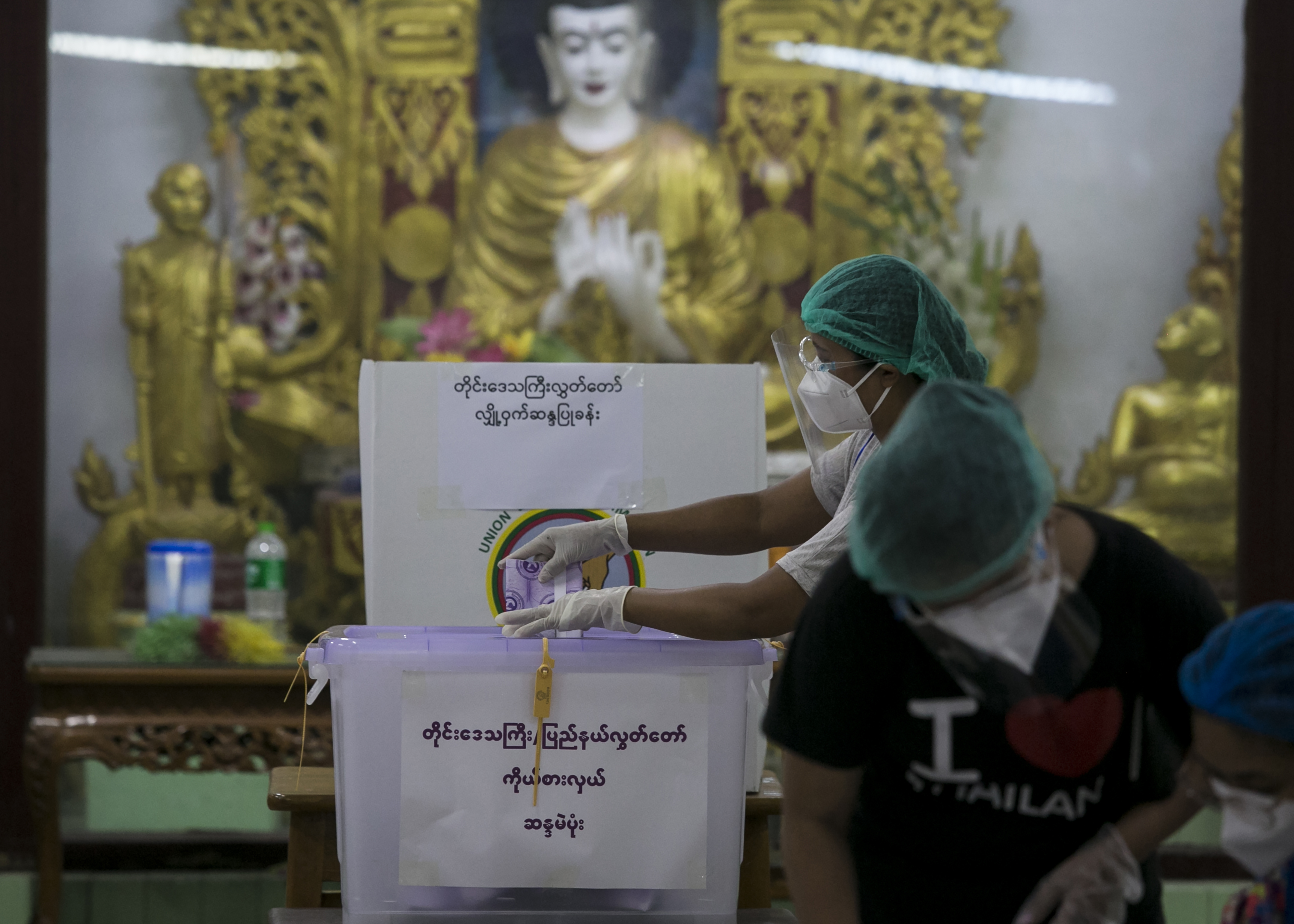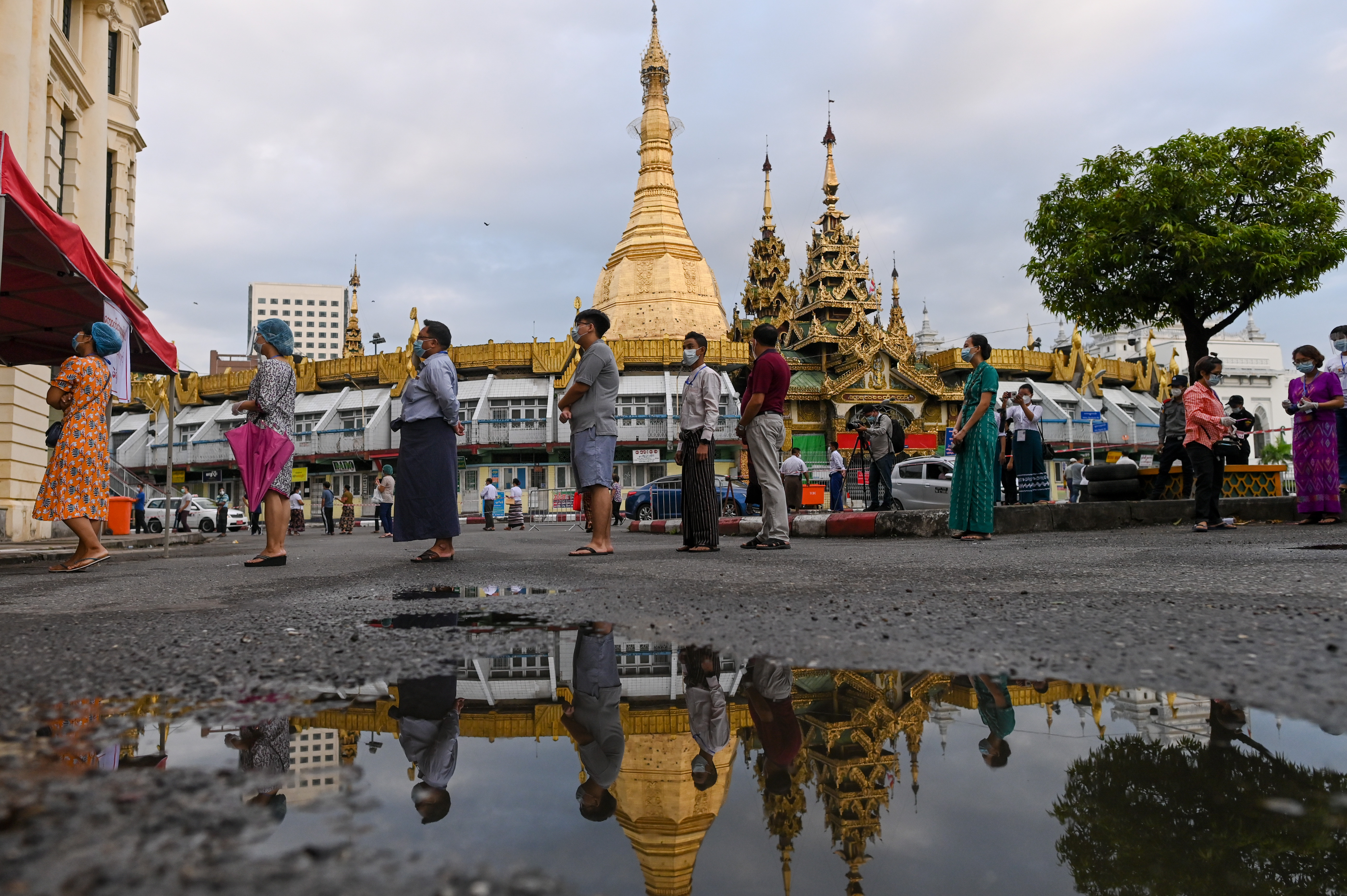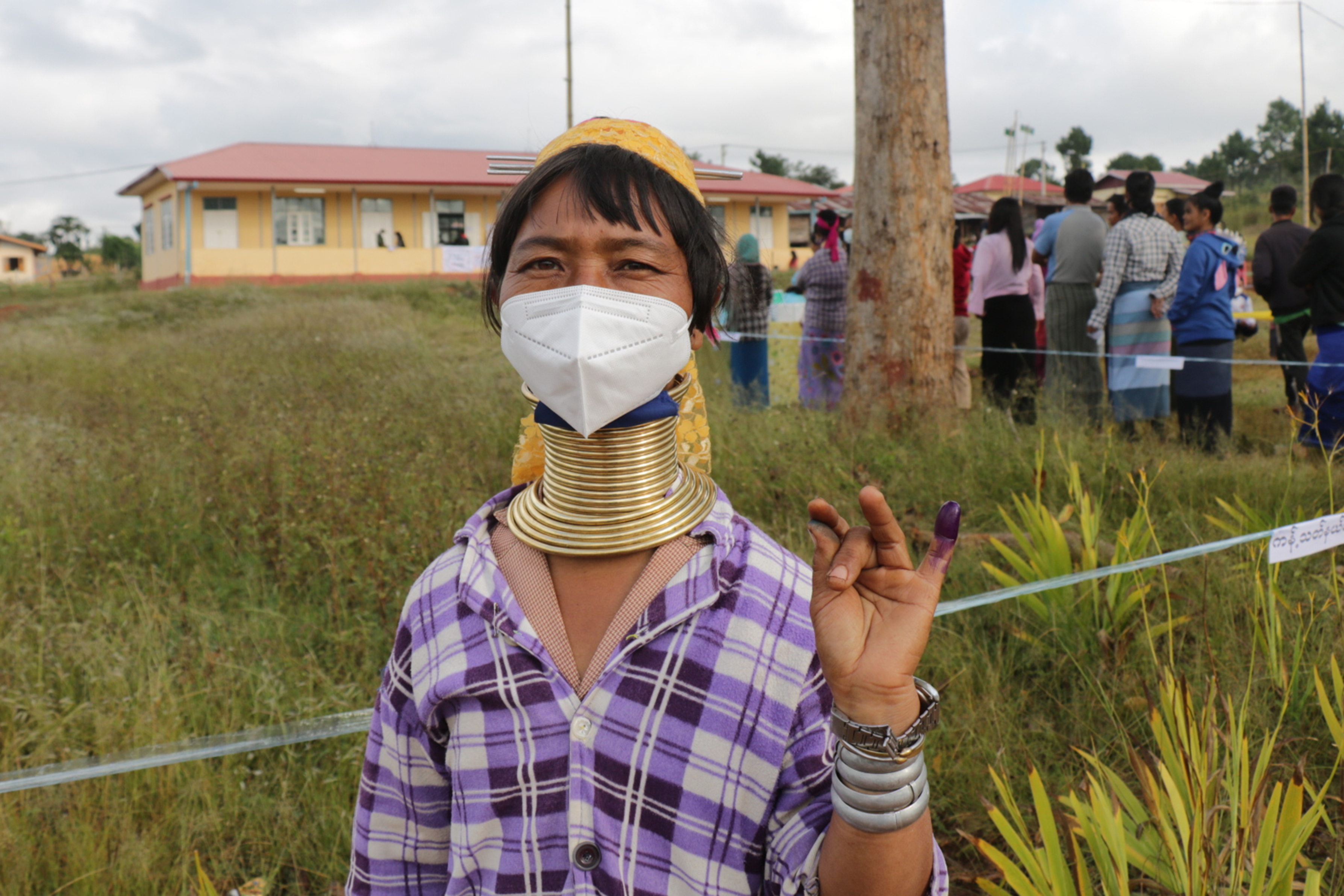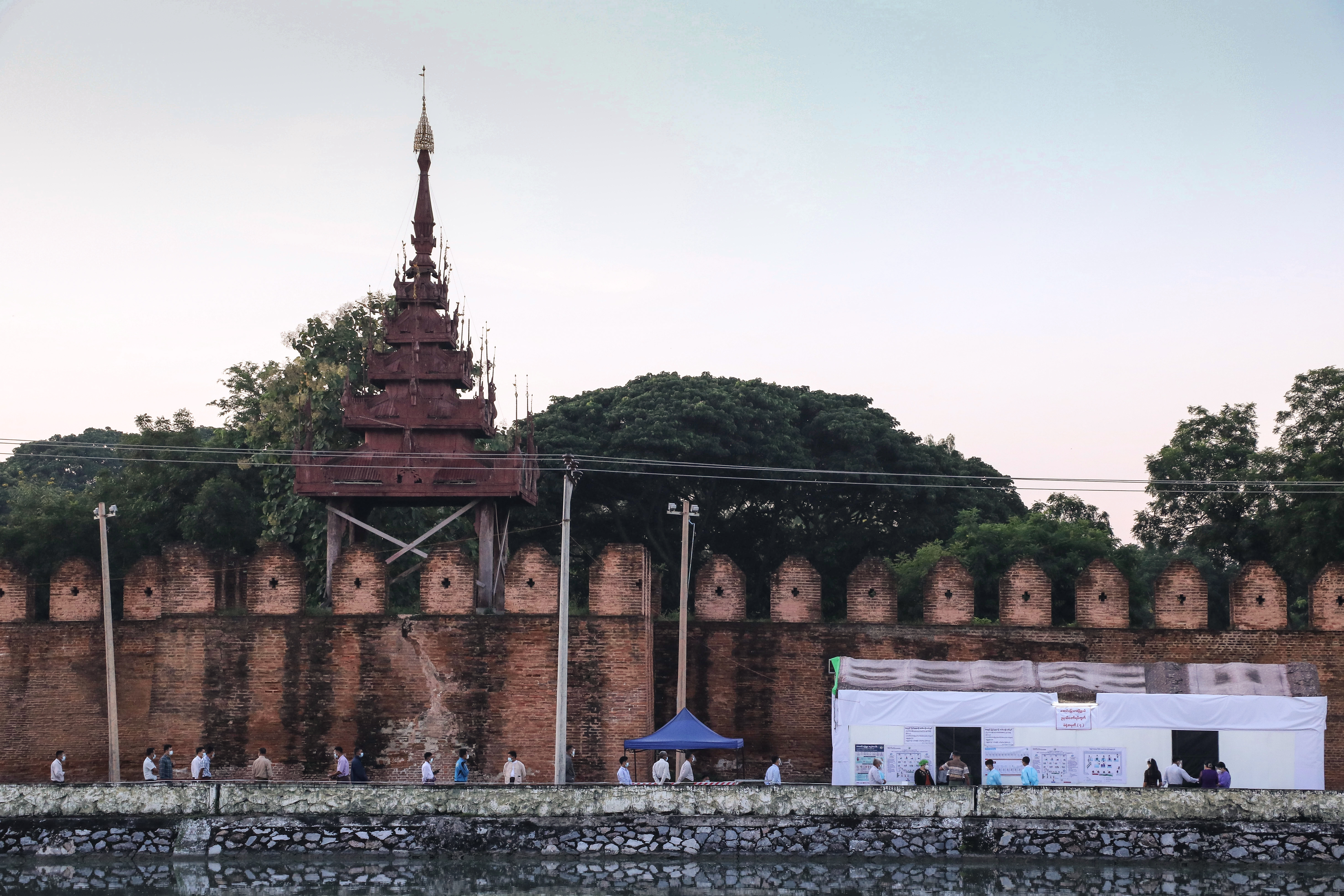Myanmar Voters Head to Polls As Aung San Suu Kyi’s Party Favored to Win
November 8, 2020Wearing masks, face shields and standing in long lines, voters across Myanmar cast ballots on Sunday in the second nationwide election since the end of junta-backed rule in the Southeast Asian country, with former human rights icon Aung San Suu Kyi's party widely favored to win.
Suu Kyi led the National League for Democracy (NLD) to a landslide victory in historic 2015 polls, commanding a majority in parliament and helming a transition to democracy celebrated around the world.
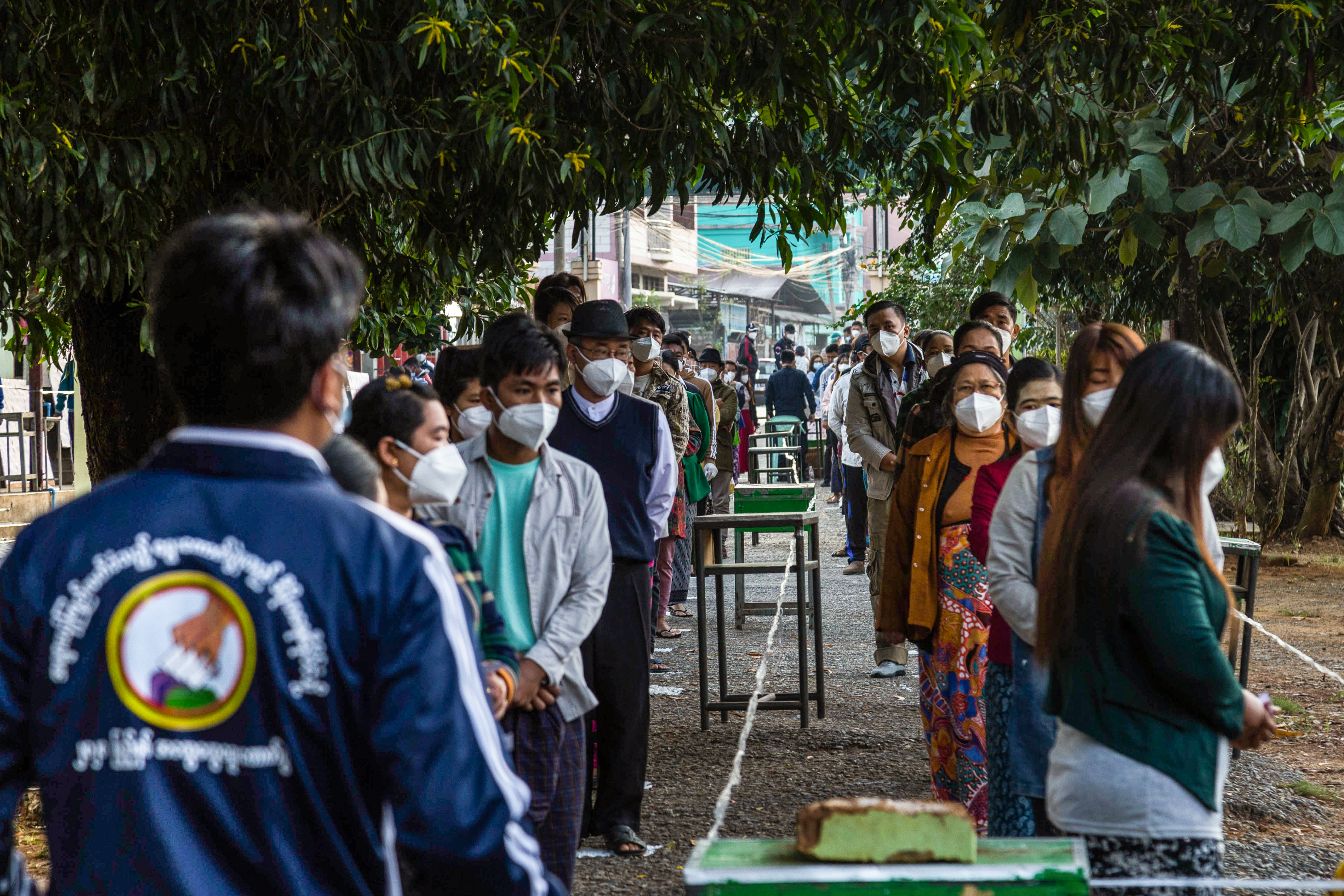
Five years later the Nobel laureate's reputation is in pieces abroad as Myanmar faces charges of genocide against its Rohingya Muslims, who were expelled in droves during a bloody 2017 military campaign. Myanmar's borderlands are still beset by conflict, there is widespread voter disenfranchisement, and the country is struggling to control a vicious second wave of the coronavirus.
But Suu Kyi, who has led the country as State Counsellor, remains broadly popular at home and the NLD is expected to handily win the election, though perhaps by not as large a margin as before. The 75-year-old is seen as a much better option than the army, which controls a quarter of appointed seats in parliament as laid out in a military-drafted constitution.
"As a first time voter, I am so happy. I will just vote for Aung San Suu Kyi," 20-year-old May Myo Mon told VICE News, wearing a face shield and mask as she waited in line in Yangon, Myanmar's biggest city. "I think we are going to have a lot of changes."
But Theo Maung, 27, said he would not vote because he doesn't believe the "popular party" (meaning the NLD) believes in human rights. He added that he doesn't want to legitimize an unfair "quasi-democracy."
Similar acts of protest occured in Myanmar with some posting photos of their fingers covered in white lime instead of purple ink, indicating they had been denied the right to vote.
Polls were cancelled in many townships for security reasons across northern Rakhine State, where the military is battling the Arakan Army, which claims to fight for the state's ethnic Rakhine Buddhists.
More than a million people have been affected. The area is the same place where security forces drove out 740,000 Rohingya Muslims in 2017. The Rohingya have been systemically persecuted for decades and were mostly not able to vote in this election or the last one, while Rohingya candidates were barred from running.
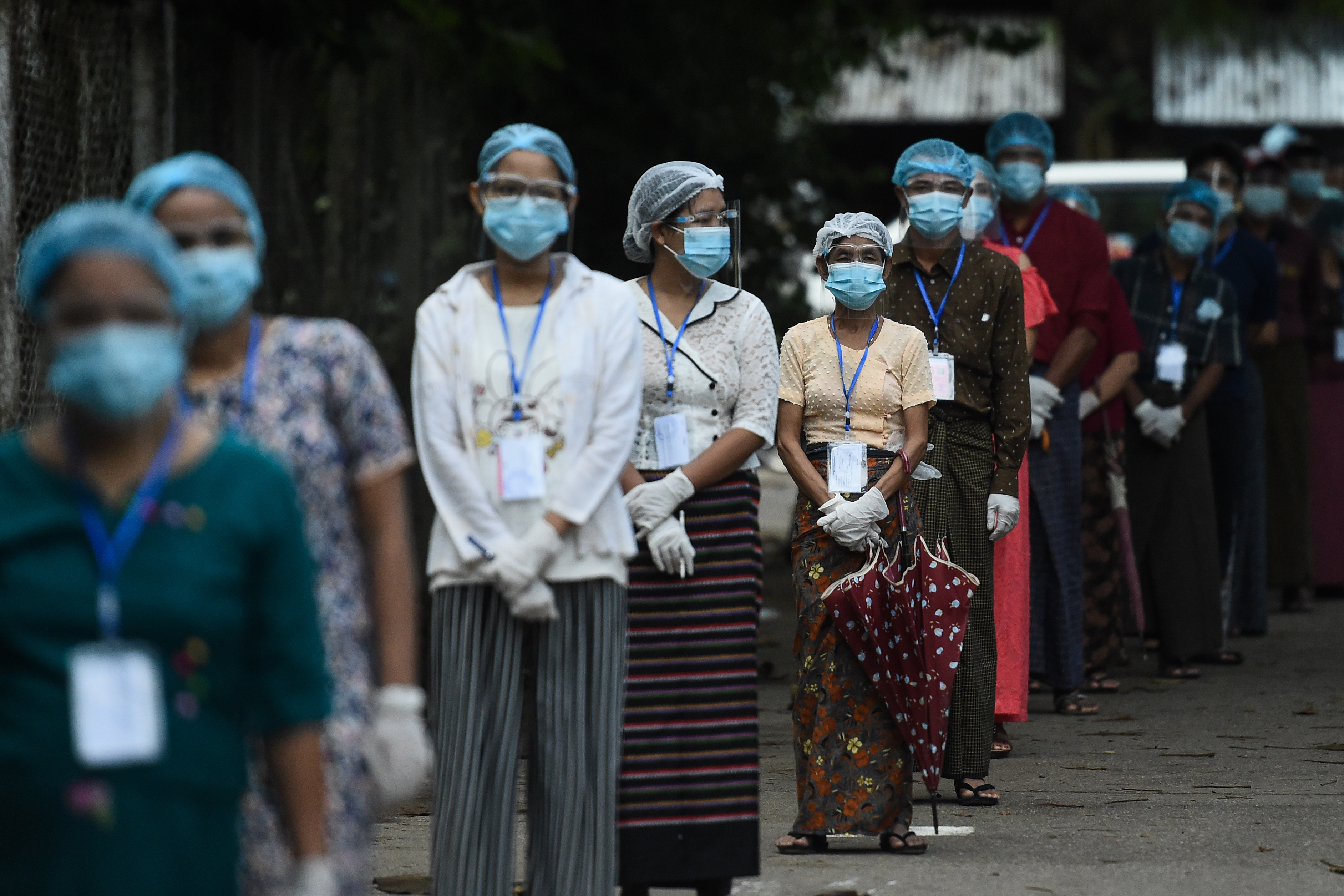
"It's a milestone for Myanmar to be holding a second multiparty election, but however long the lines are to vote, this election will be fundamentally flawed," Brad Adams, Human Rights Watch's Asia director, said in a recent overview of the election.
"The election can't be free and fair so long as a quarter of the seats are reserved for the military, access to state media isn't equal, government critics face censorship or arrest, and Rohingya are denied participation in the vote."
But despite its many flaws voters waited patiently in line in front of temples and in far-flung remote areas of the Buddhist-majority country to have a chance to participate in democracy.
Polls close at 4pm but voting will likely extend given the longer lines. It was not immediately clear when the results would be announced.
